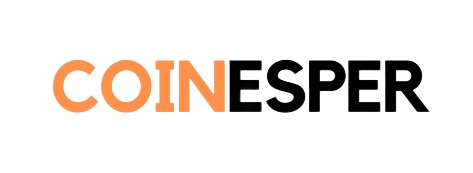Zero Knowledge Proof (ZKP) is gaining momentum in the decentralized ecosystem as it revolutionizes the scaling of blockchain technology. It ensures privacy and scalability of the blockchain, which has been a major concern for enterprises. Though many layer-2 solutions prefer optimistic roll-ups, several projects have done incredible work to promote the adoption of ZKPs. This article highlights the top 10 zero knowledge proof projects that are likely to drive the enterprise-level adoption of blockchain.
Contents
1. StarkEx
StarkEx is a layer-2 scaling solution that has been working to enhance blockchain scalability and privacy through zero-knowledge succinct non-interactive argument on knowledge (SNARKs).
The platform uses lightweight cryptographic hash-functions to maintain computational integrity, which is critical for scaling the blockchain ecosystem.
StarkEx is an entire ecosystem that does not require a third party to set up the ZKP systems.
It has been widely used by exchanges and DeFi protocols to scale their operations with minimal gas costs and higher scalability. However, the trade-off of StarkEX is the computational Integrity bolstering commerce.
2. StarkNet
StarkNet is a general-purpose ZKP that offers faster deployment of decentralized applications (dApps) on its ecosystem while maintaining the integrity of computation through level-2 cryptographic proofs and modern Algebra.
The platform provides the same composability level as Ethereum, allowing developers to further speed up the development process and come up with advanced solutions.
It also supports multi-calls or multiple transactions in one single call to settle the accounts, thus reducing the flow of data from the off-chain computational layer to the main parent chain, which is Ethereum.
3. Miden
Polygon Miden is layer 2 scaling solution for Ethereum.
Miden relies on zero-knowledge technology (zk-STARKs) to “roll-up” thousands of layer 2 transactions into a single Ethereum transaction, thus, increasing throughput and reducing transaction fees.
At the heart of Polygon Miden is Miden VM: a Turing-complete STARK-based virtual machine which provides a level of safety and supports advanced features currently not available on Ethereum.
4. Polygon Zero
Polygon Zero is a layer 2 scaling solution for Ethereum.
What separates Polygon Zero from other ZK scaling solutions is the power of Plonky2, a groundbreaking prover system, which generates ZK proofs faster than any other existing tech.
Plonky2 supports efficient recursive proof generation, allowing Polygon Zero to scale horizontally, meaning the throughput of the protocol is limited not by the weakest nodes on the network, but only by the total compute available.

5. Hermez
Hermez is a zk-rollup network that enables users to transact in a more efficient and affordable way, without compromising the security of their funds. The platform uses zero-knowledge proofs to bundle thousands of transactions into a single transaction, reducing gas fees and increasing throughput.
Hermez has been integrated with major DeFi protocols such as Aave, Curve, and Uniswap.
6. Aztec Protocol
Aztec Protocol is a privacy-focused protocol that allows users to transact on Ethereum without revealing their transaction amount or any other sensitive information.
The platform uses zero-knowledge proofs to maintain the confidentiality of the transaction while ensuring that it is valid.
Aztec Protocol has been used in various DeFi applications such as privacy-preserving trading and lending.
7. Mina
Mina is the world’s lightest blockchain, powered by participants.
Rather than apply brute computing force, Mina uses advanced cryptography and recursive zk-SNARKs to design an entire blockchain that is about 22kb, the size of a couple of tweets.
With its unique privacy features and ability to connect to any website, Mina is building a private gateway between the real world and crypto—and the secure, democratic future we all deserve. Mina is stewarded by the Mina Foundation, a public benefit corporation headquartered in the United States.
8. Raze Network
Raze Network is a EVM-compatible privacy protocol.
It is built as a native privacy layer that can provide end-to-end anonymity for the entire DeFi and Web3.0 stack.
The Raze Network applies zkSNARKs to the Zether framework to build a second-layer decentralized anonymous module.
The objective of Raze Network is to enable multichain privacy-preserving payment and trading systems, while protecting the transparency of your assets and behaviours from surveillance.

9. Secret Network
Secret Network is a privacy-focused blockchain that allows for private smart contracts. The network uses a combination of secure enclaves and ZK proofs to ensure that smart contract data remains private and confidential.
Secret Network is built using CosmWasm, enabling it to run on multiple chains using IBC and interact with the Cosmos ecosystem.
With DPoS, Secret can process close to 10,000 transactions per second with a block time of only 6-7 seconds. It makes the blockchain more environmentally friendly, and allows any token holder to participate in governance.
The network is focused on providing privacy for a wide range of use cases, including DeFi, gaming, and identity management.

10. Aleo
Aleo is a privacy-focused blockchain that uses zk-SNARKs to ensure that transactions remain private and confidential.
Developers can write their apps using Aleo’s programming language (Leo) with ease.
No cryptography needed.
Aleo aims to provide a secure and private environment for a wide range of use cases, including DeFi, gaming, and supply chain management.
Final Thoughts
Zero-knowledge proof technology has the potential to revolutionize the blockchain industry by providing enhanced privacy, scalability, and security. The projects mentioned above are at the forefront of this technology, driving the adoption of ZKP and making it accessible to businesses and users alike. As we move into 2023, it will be interesting to see how these projects evolve and what new innovations they bring to the industry.


